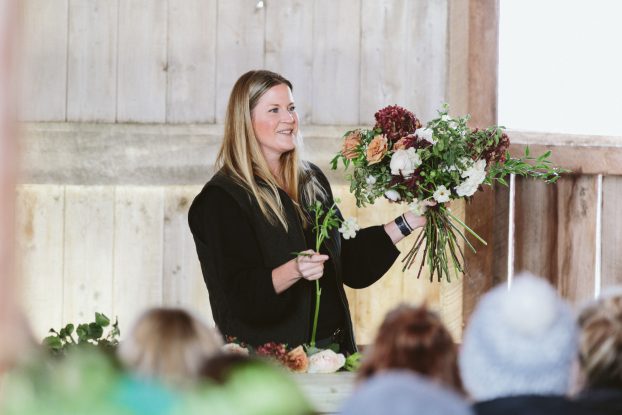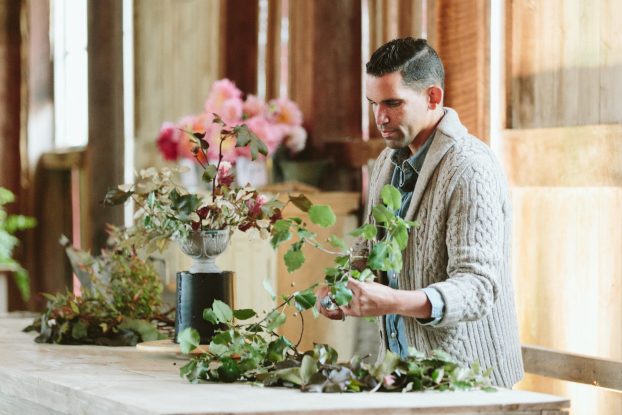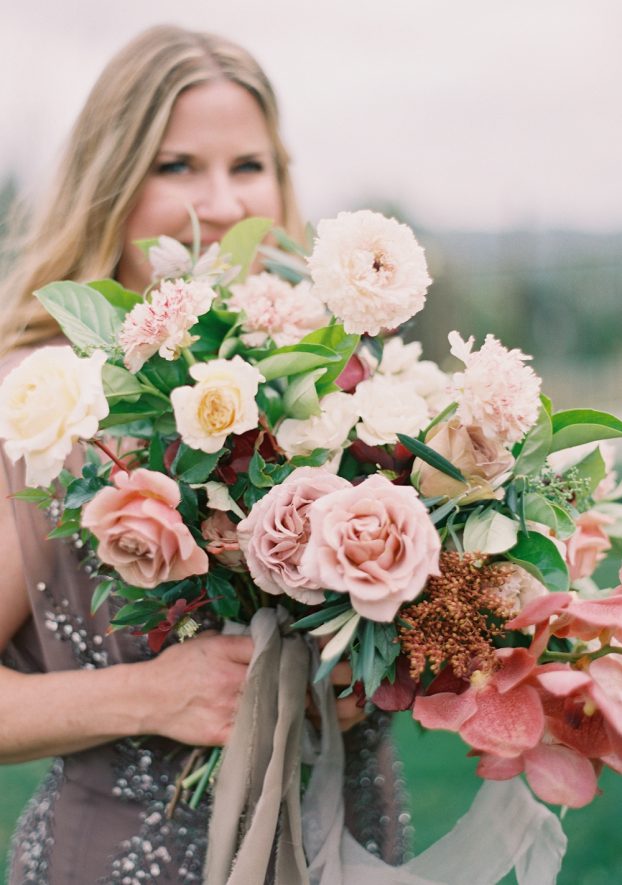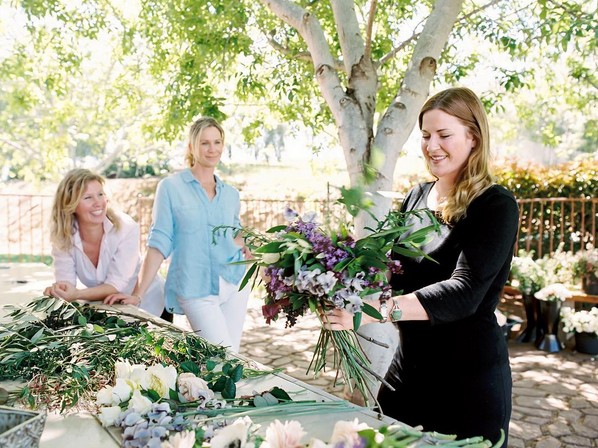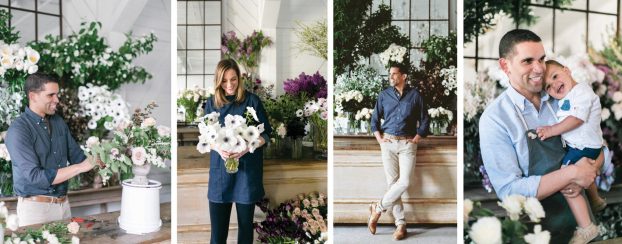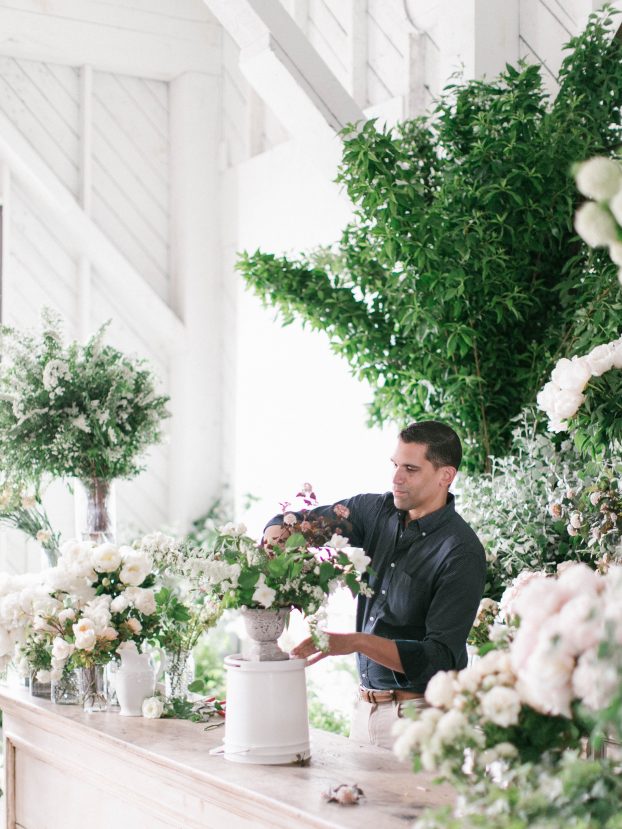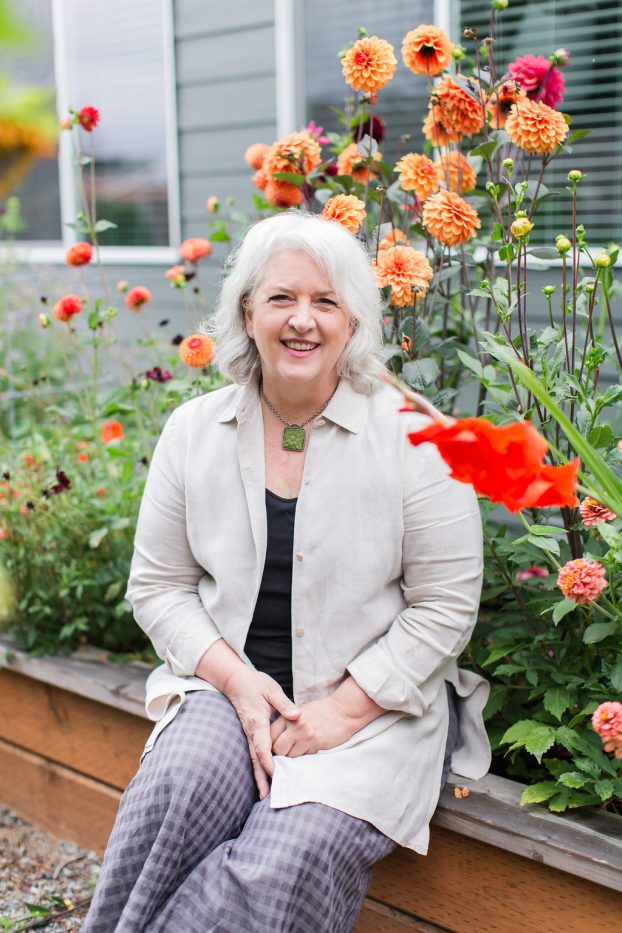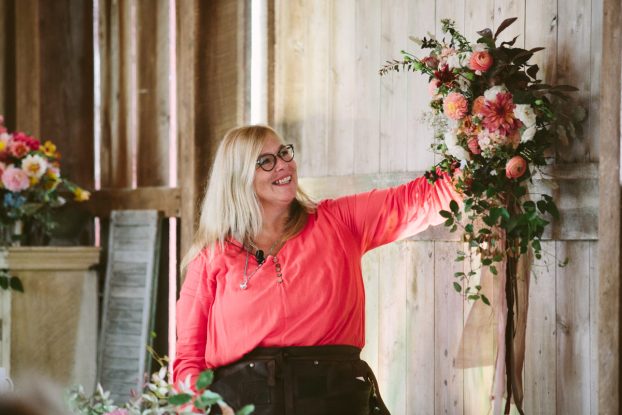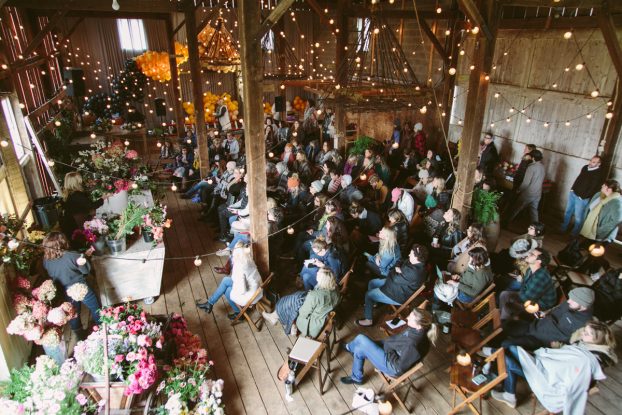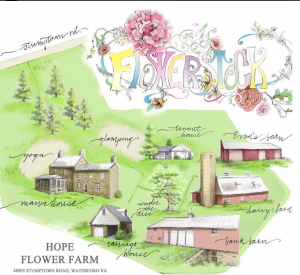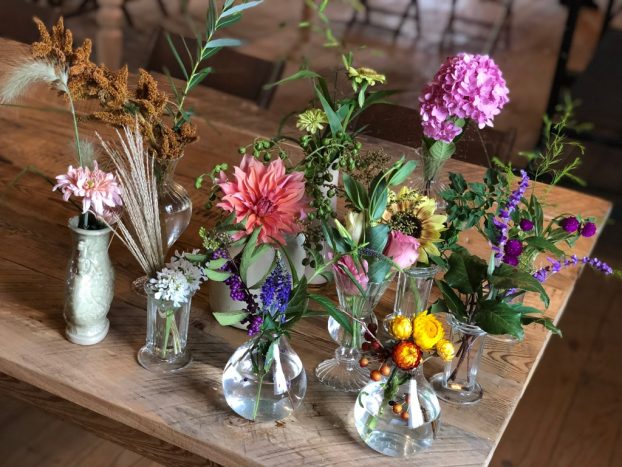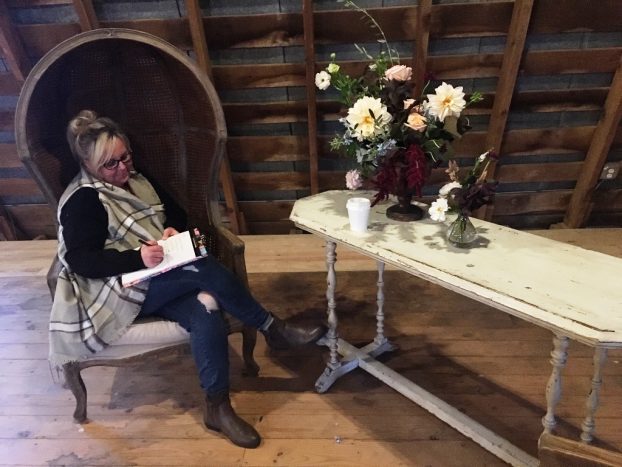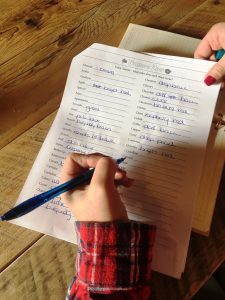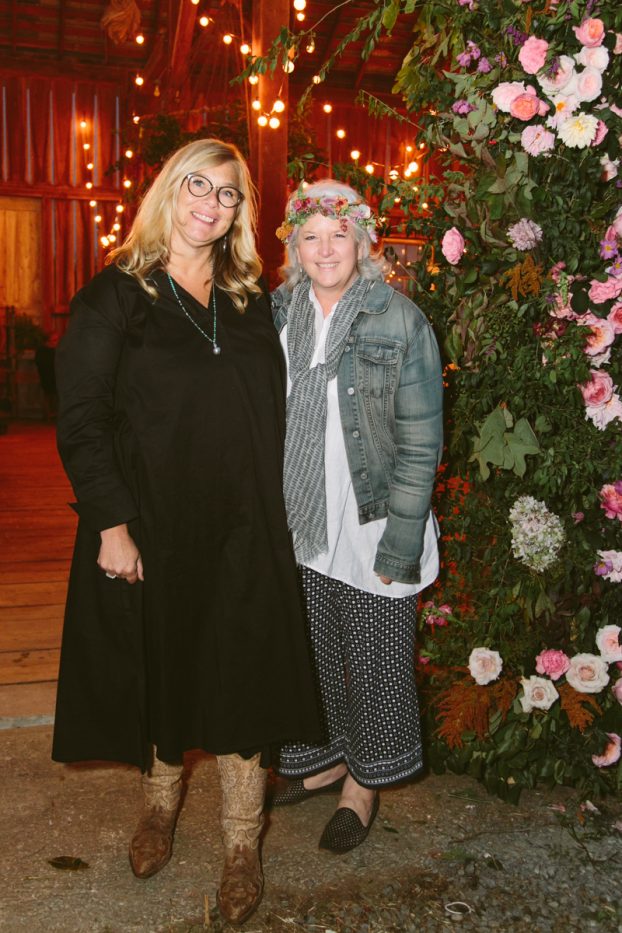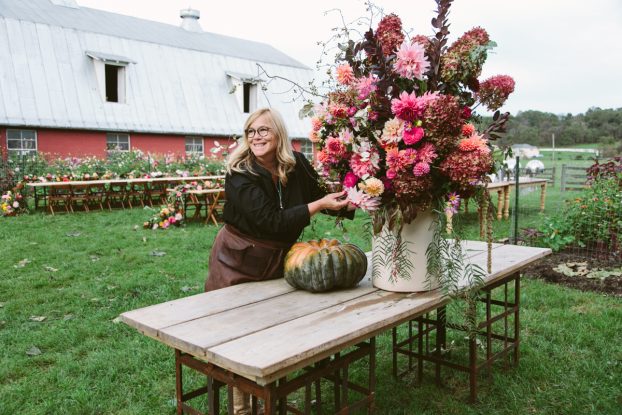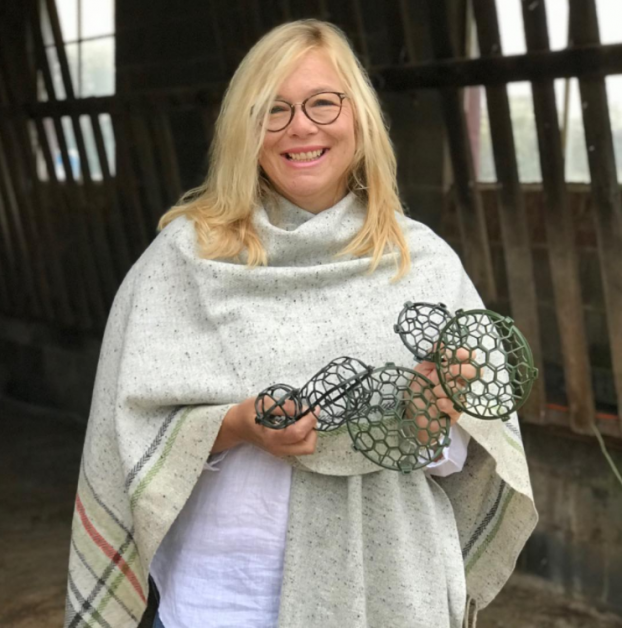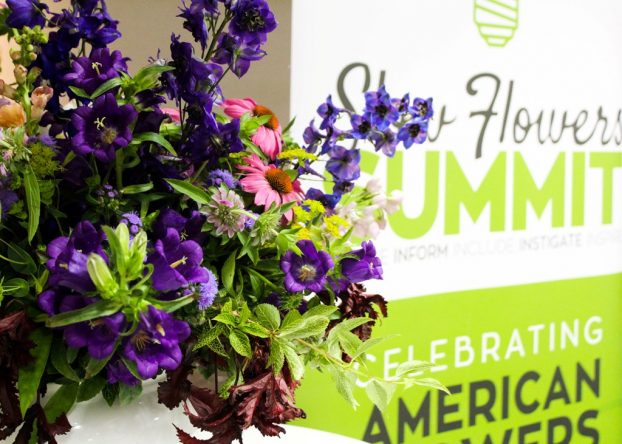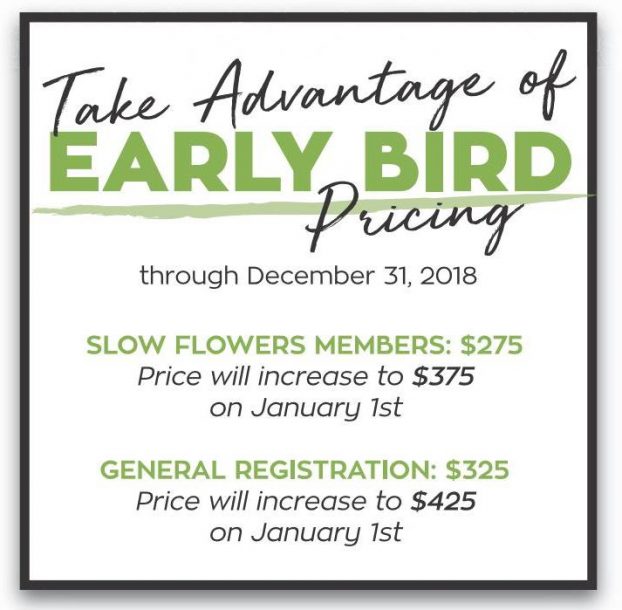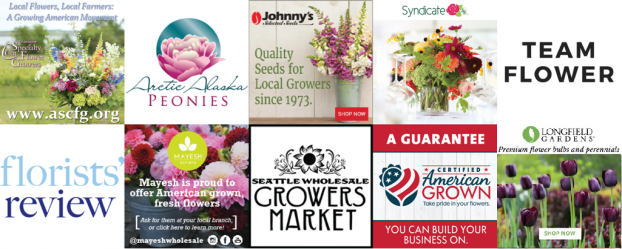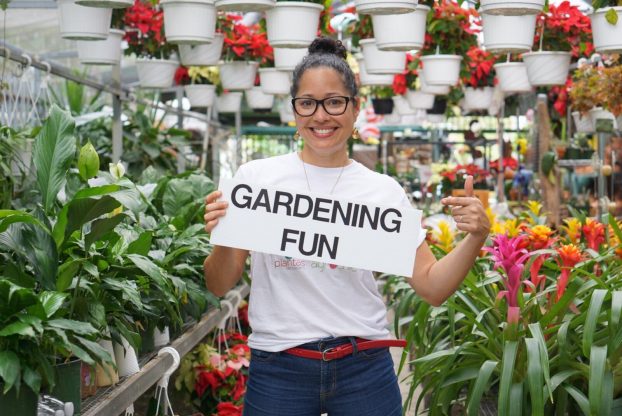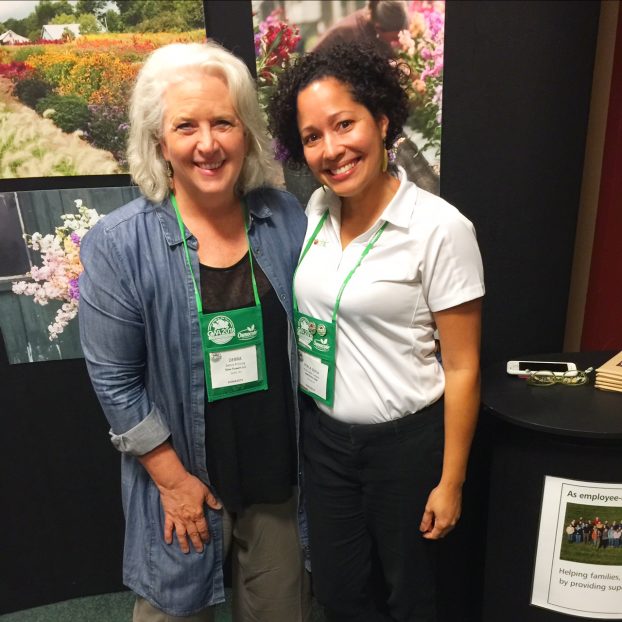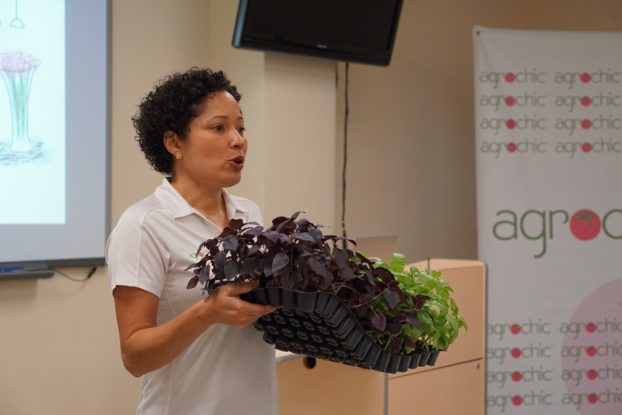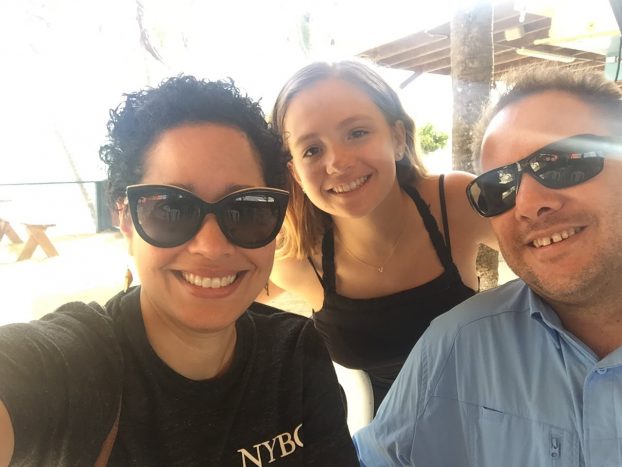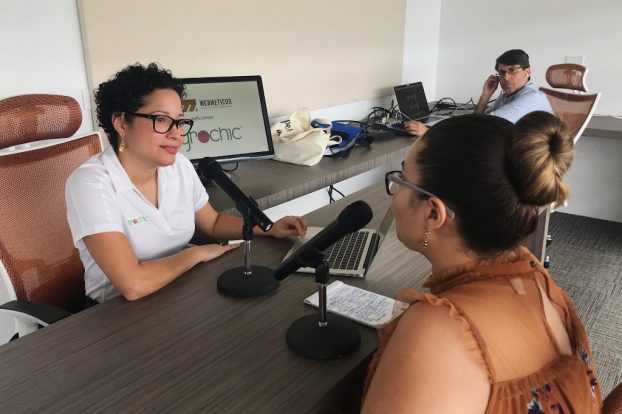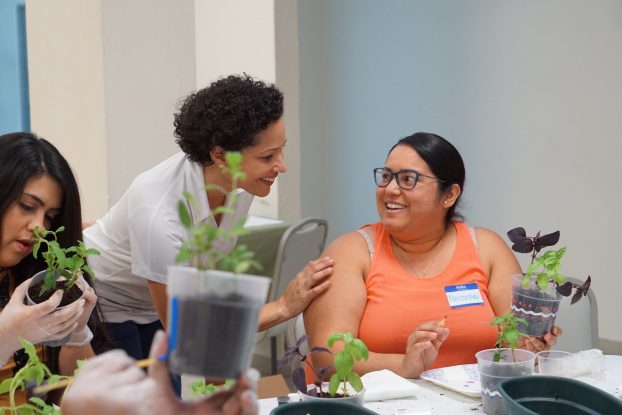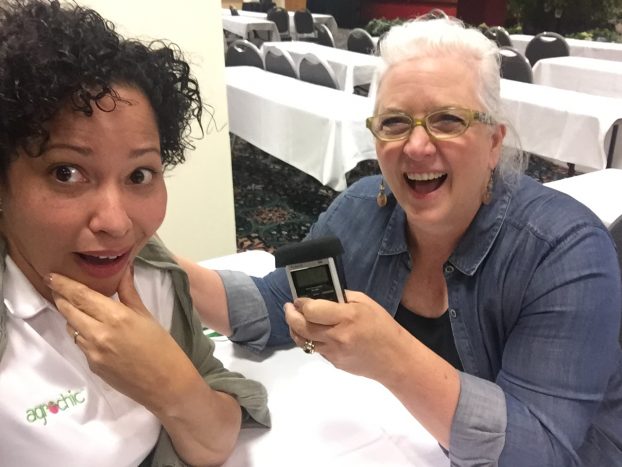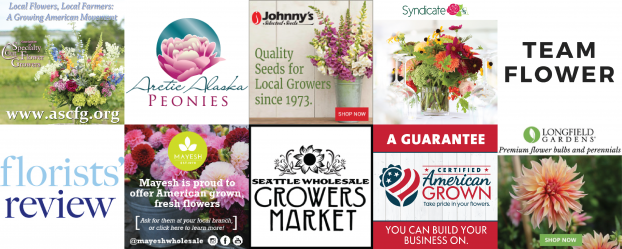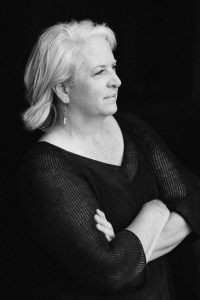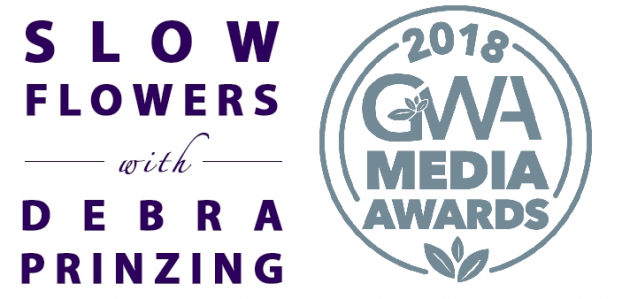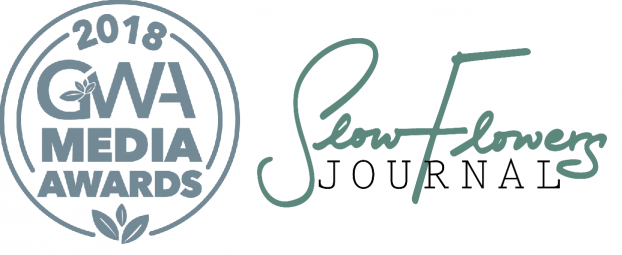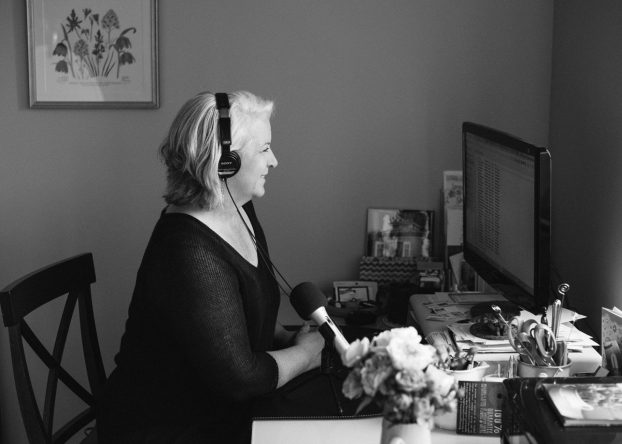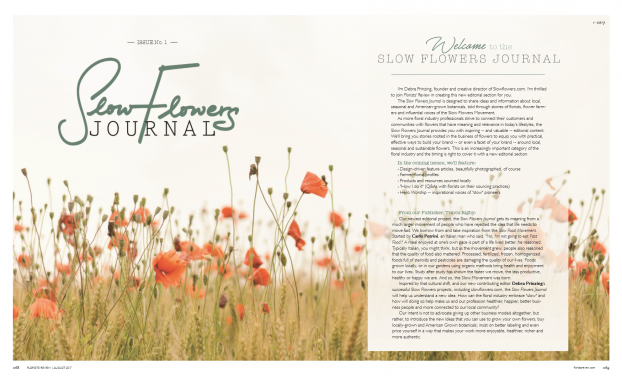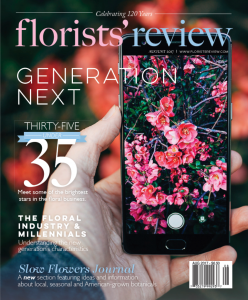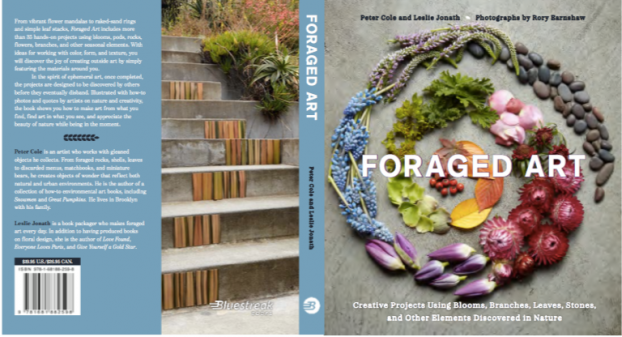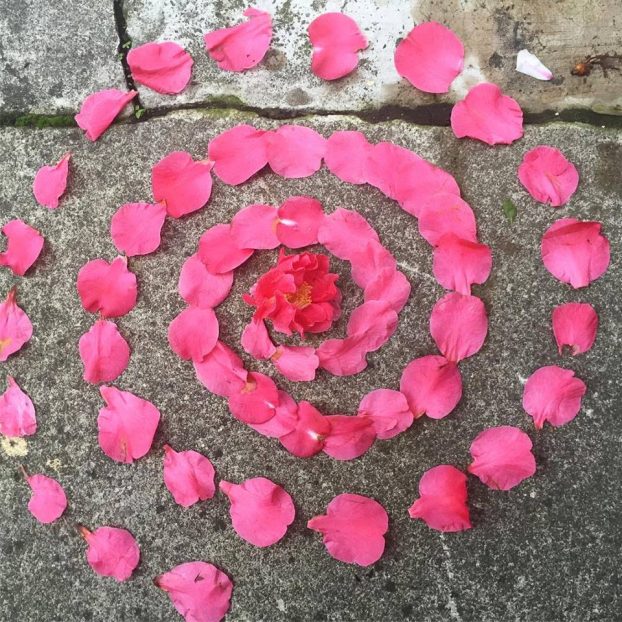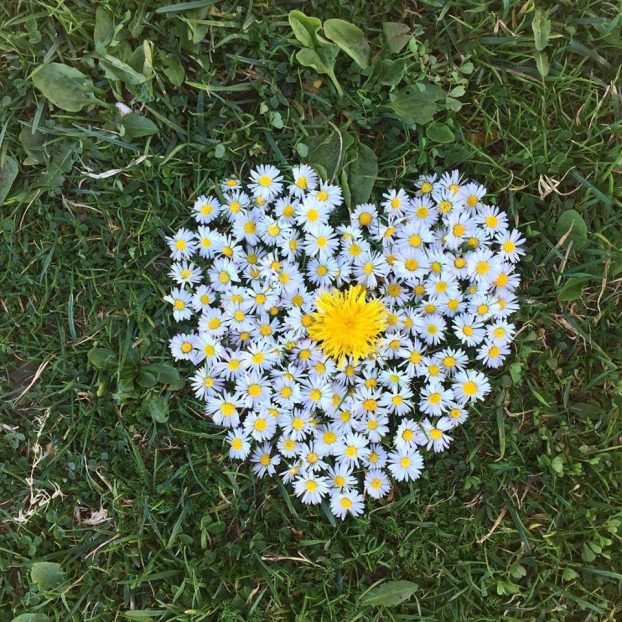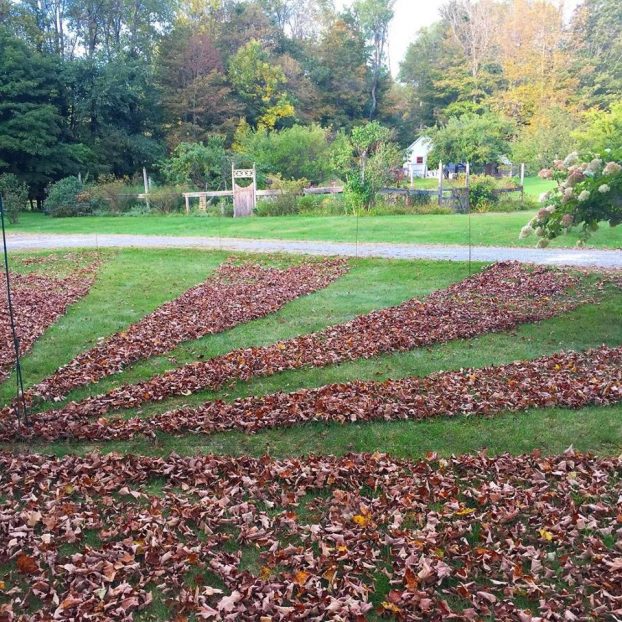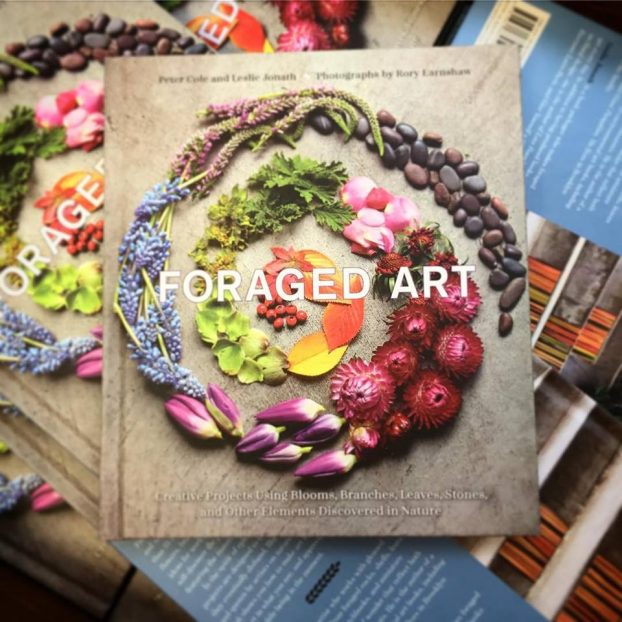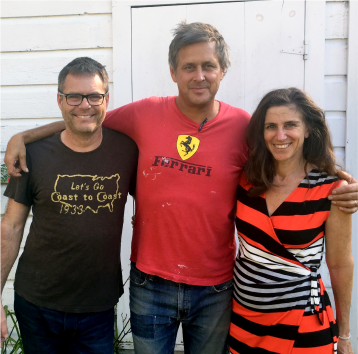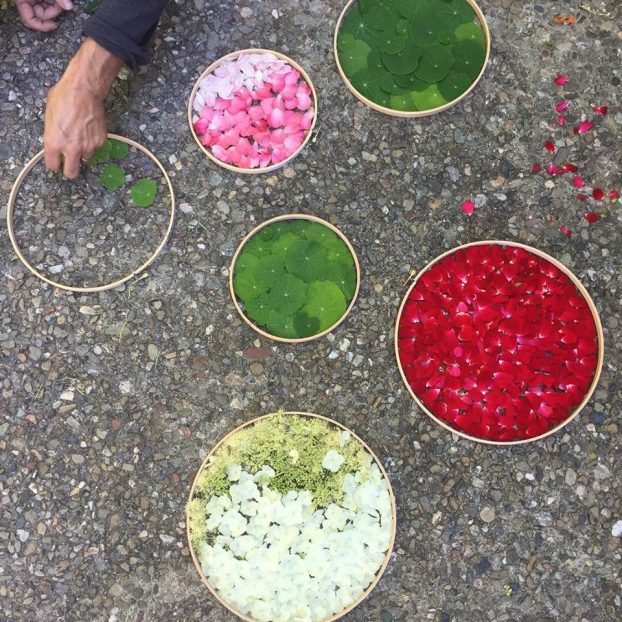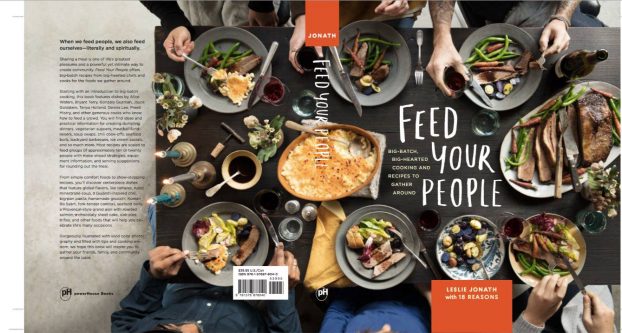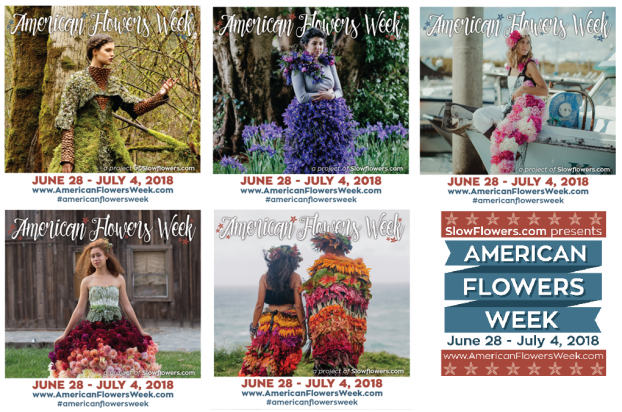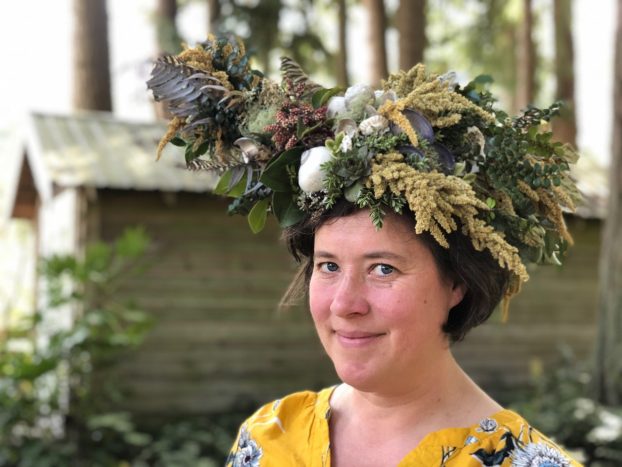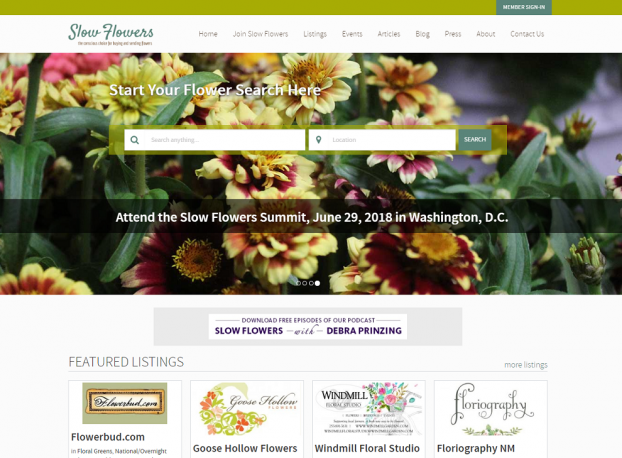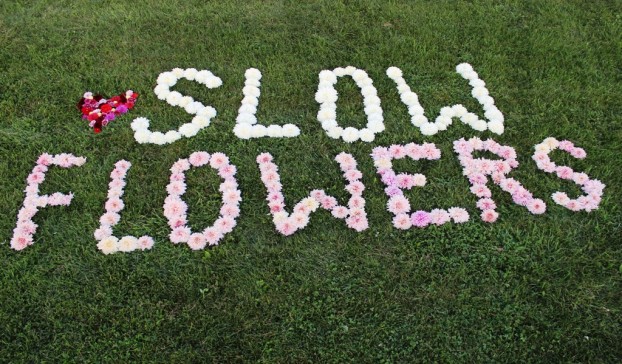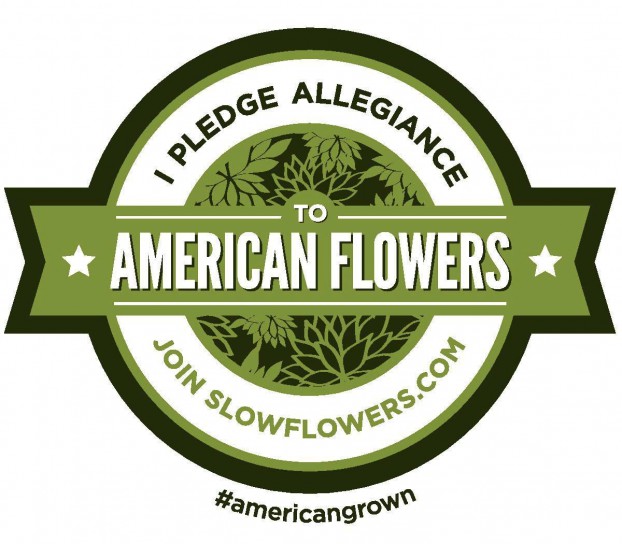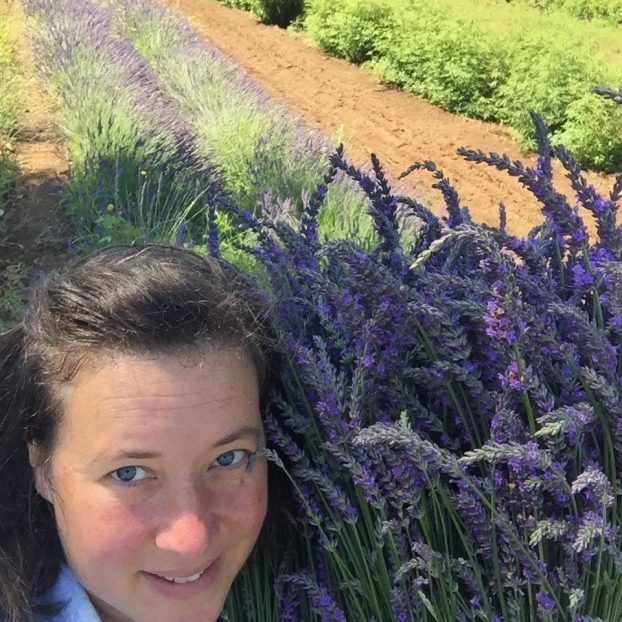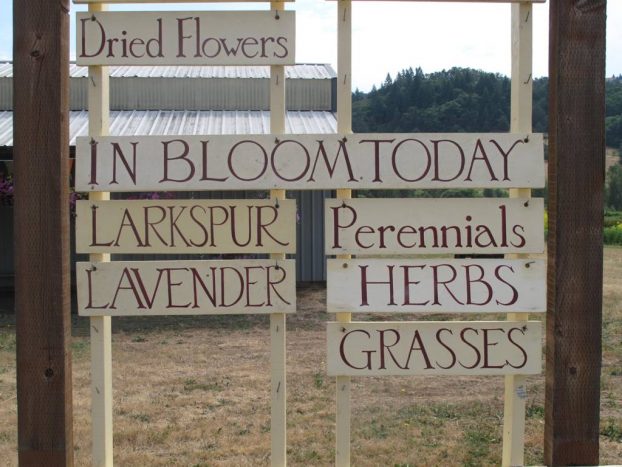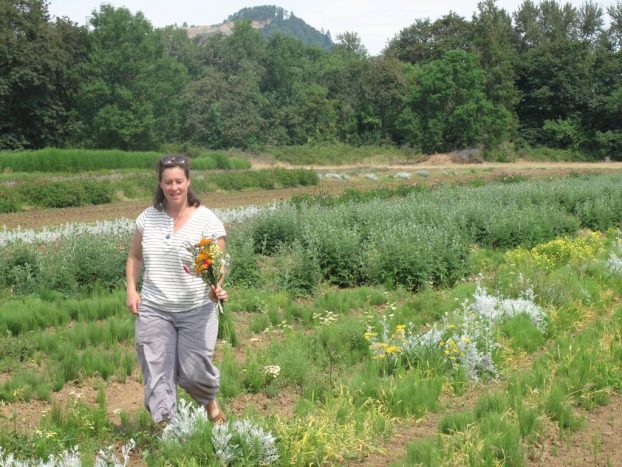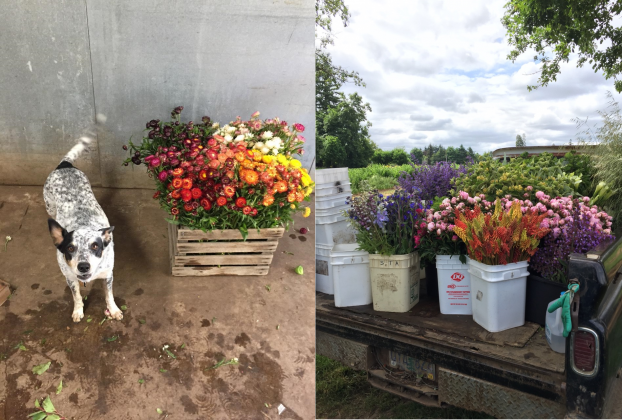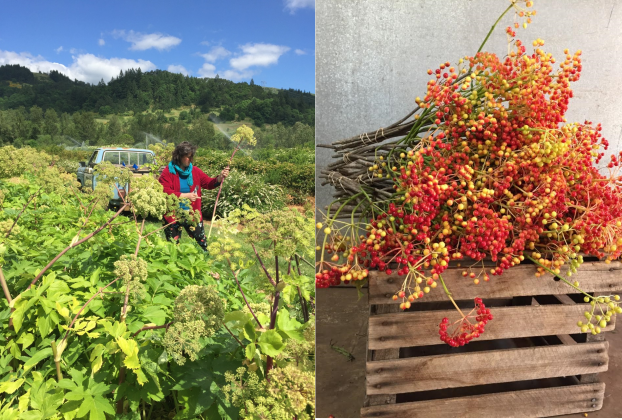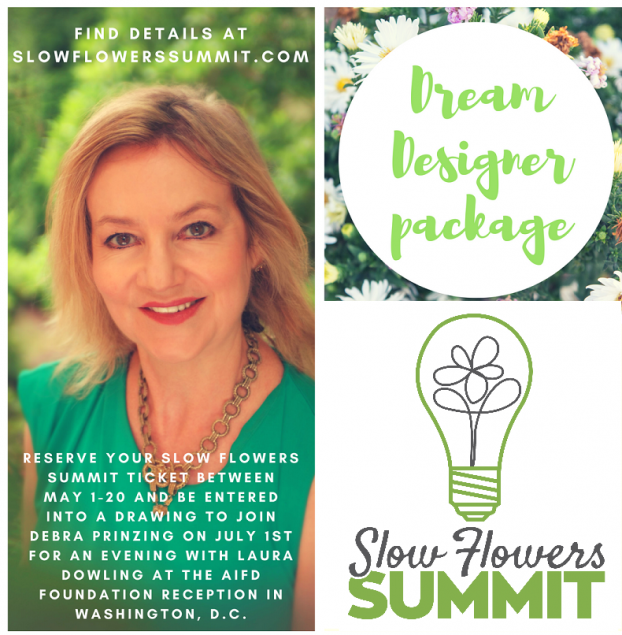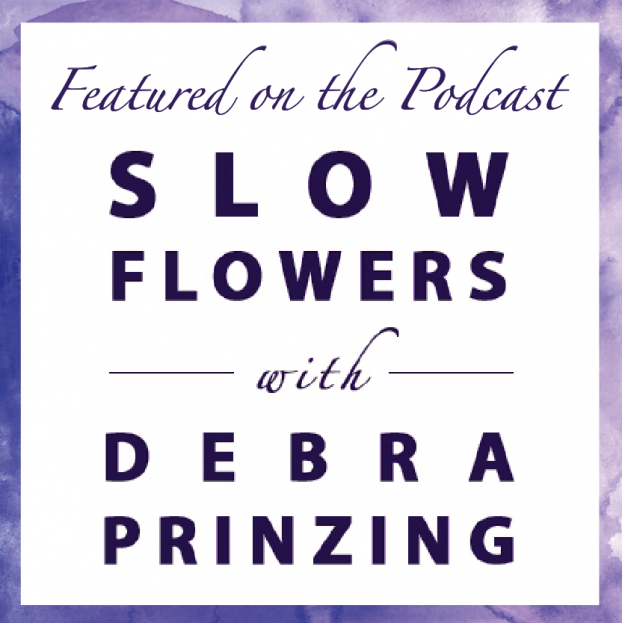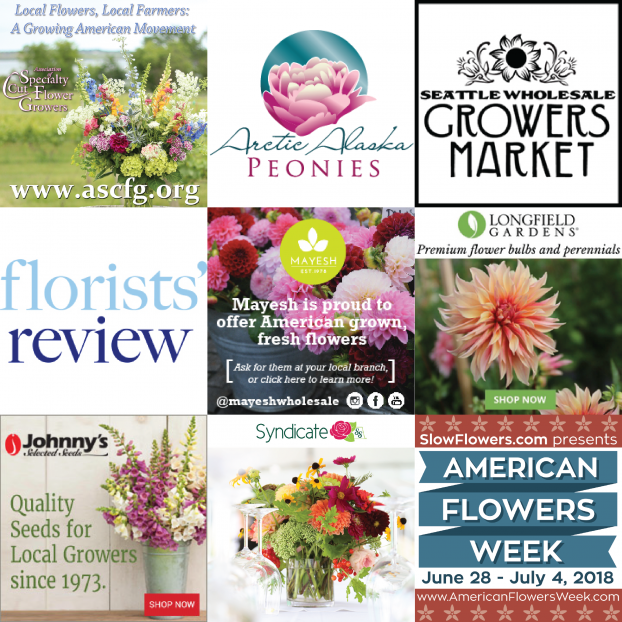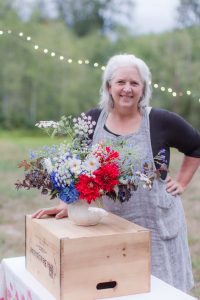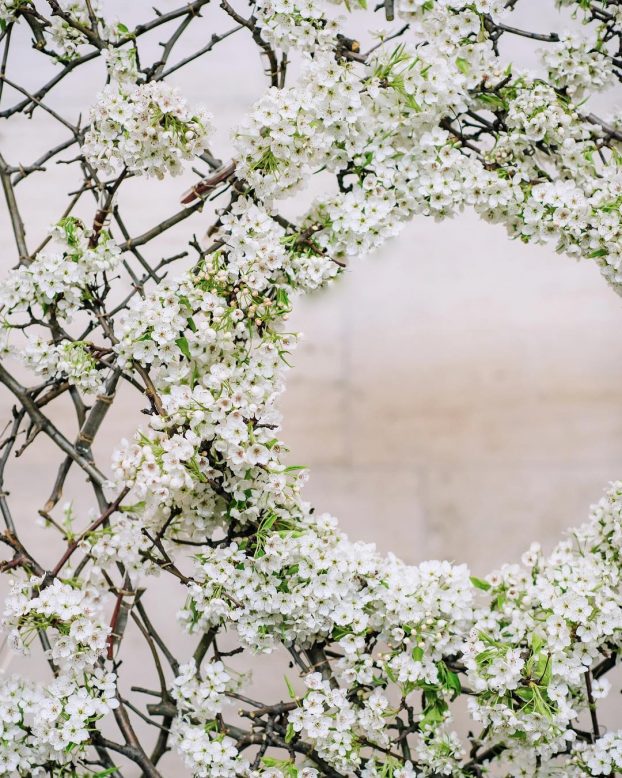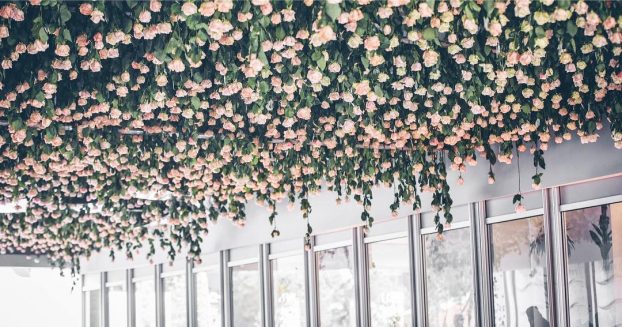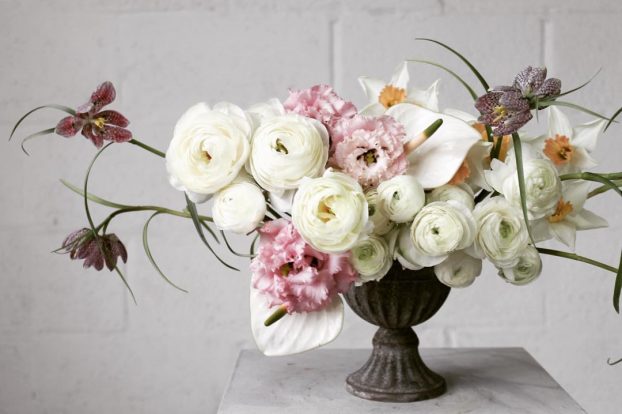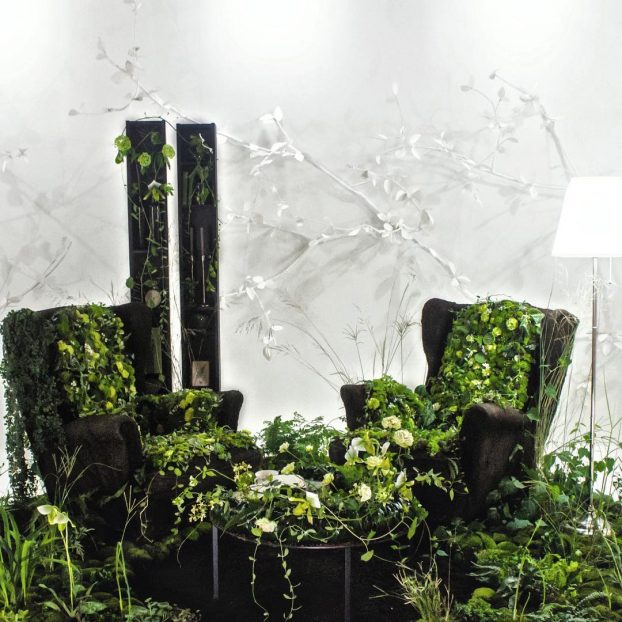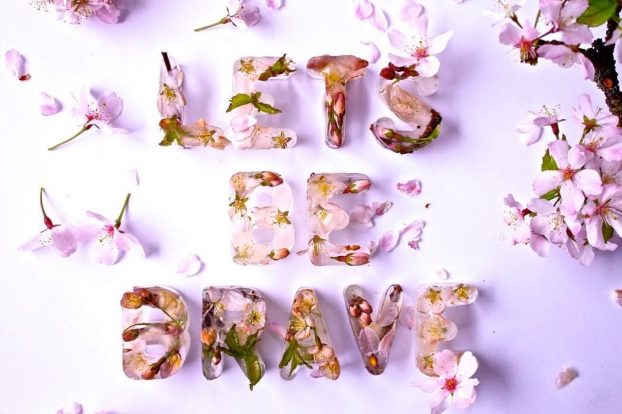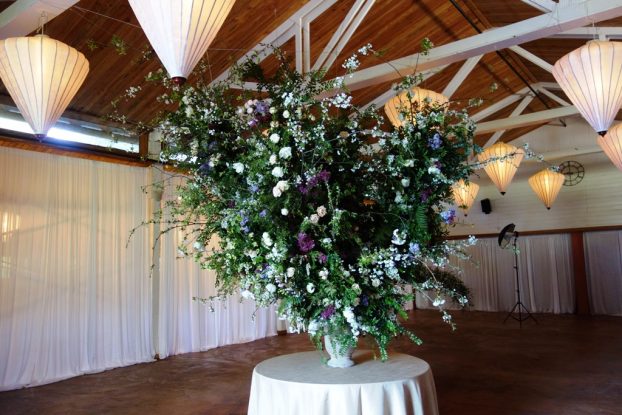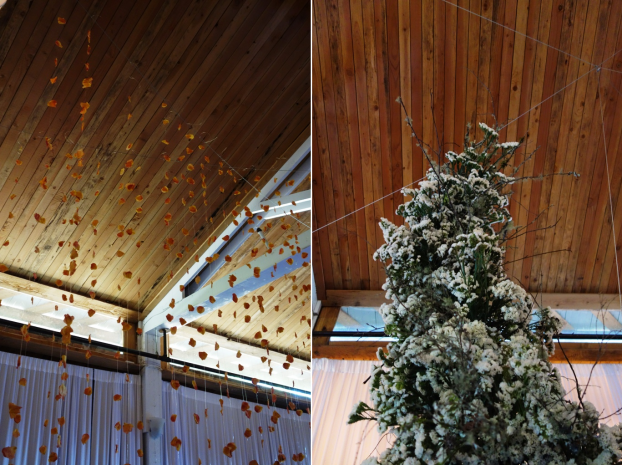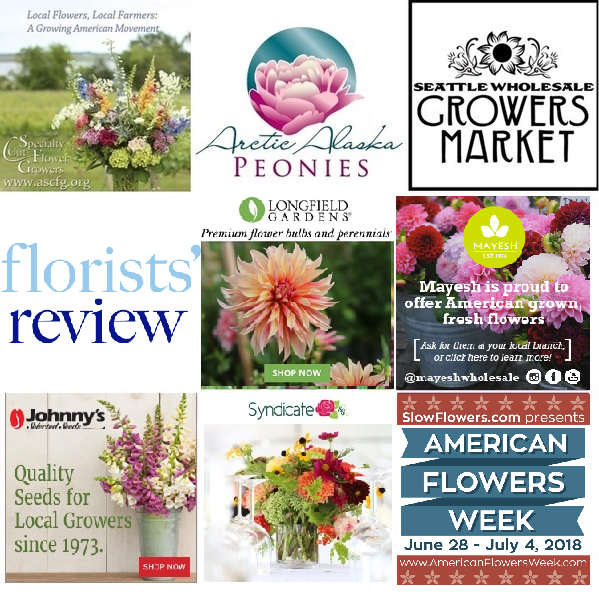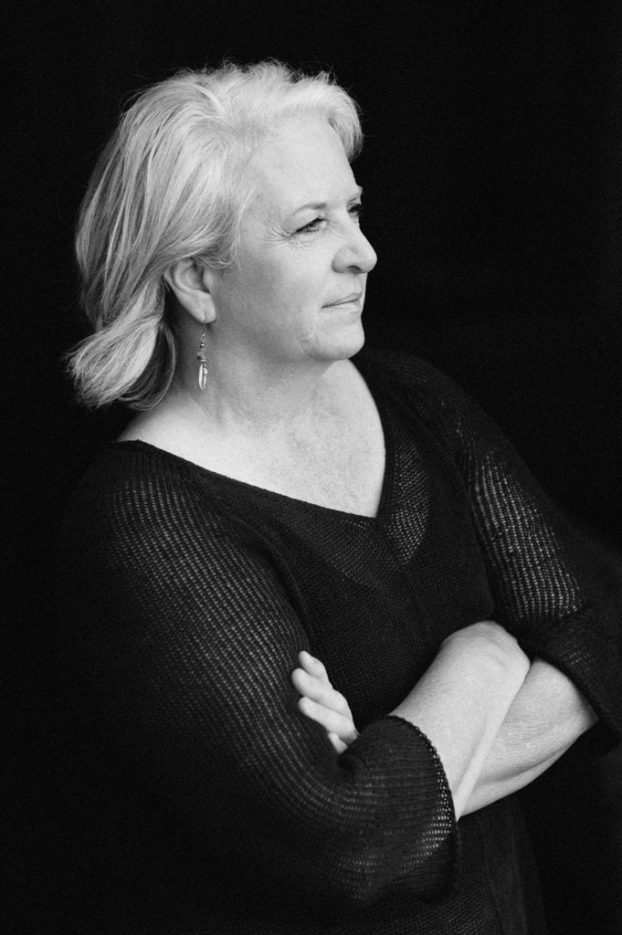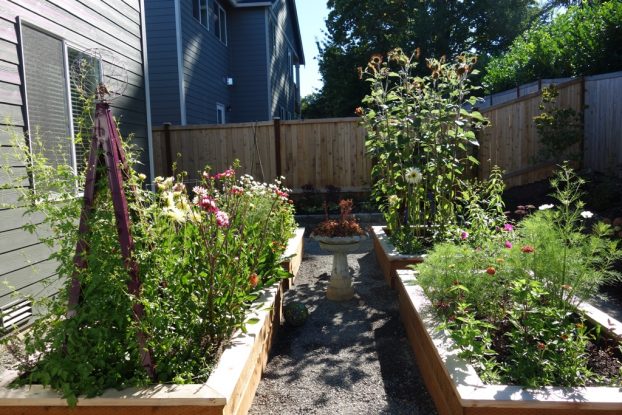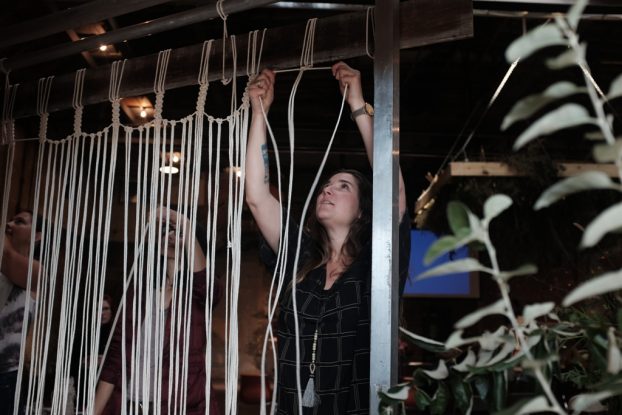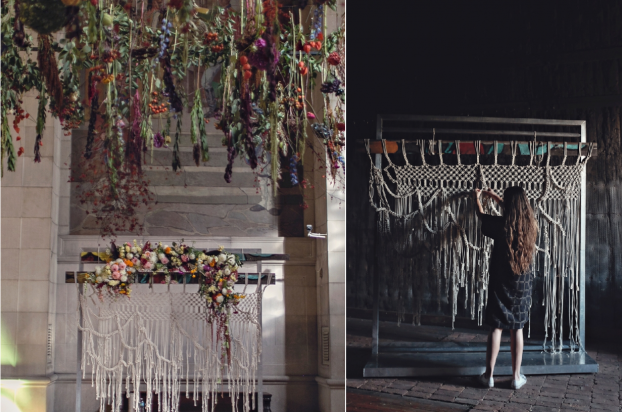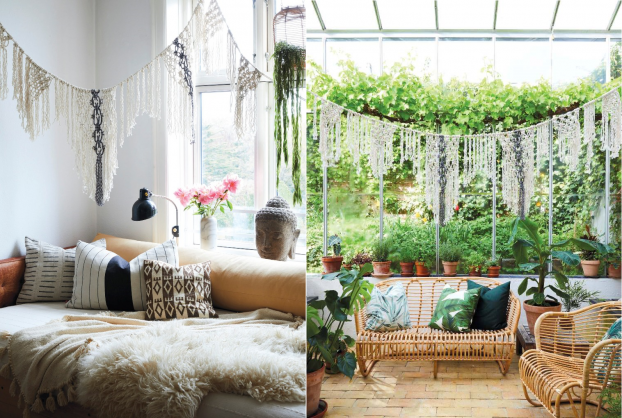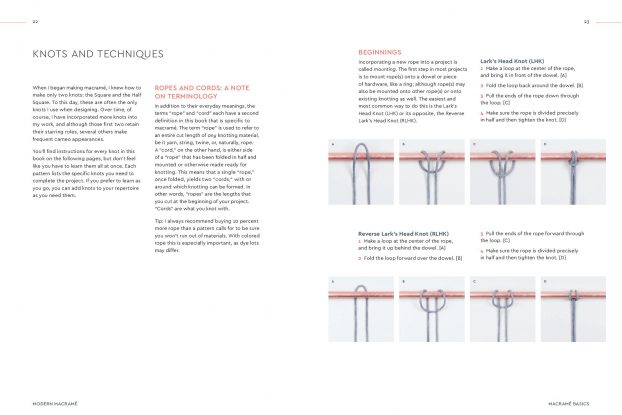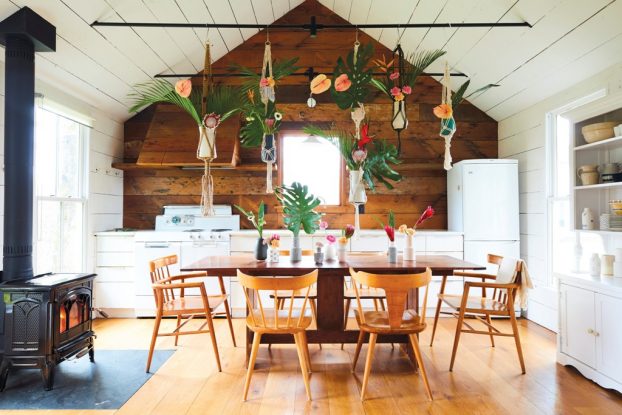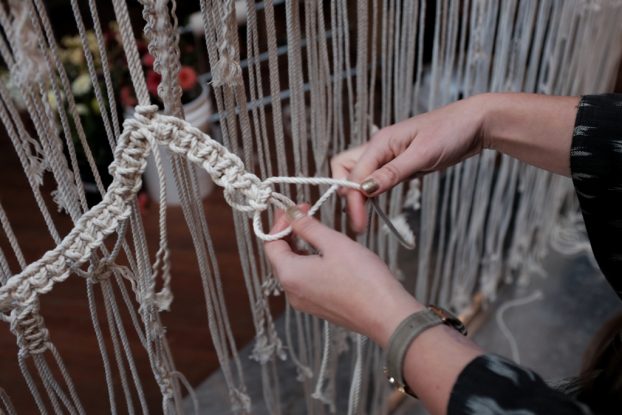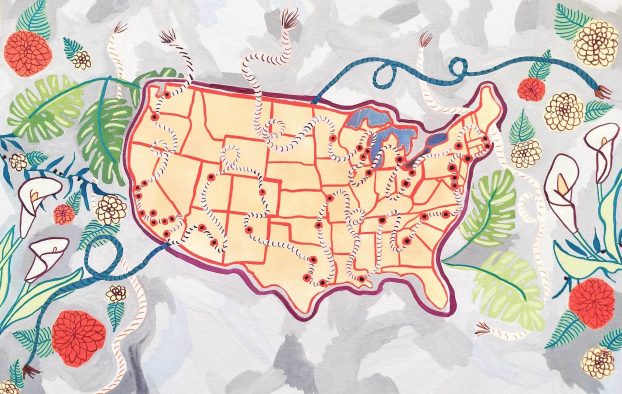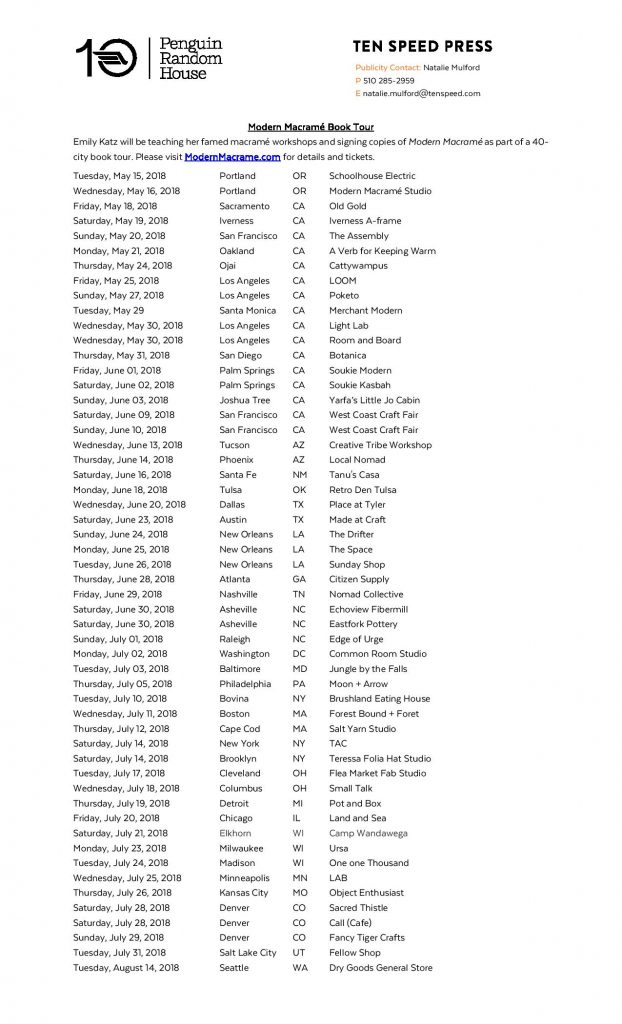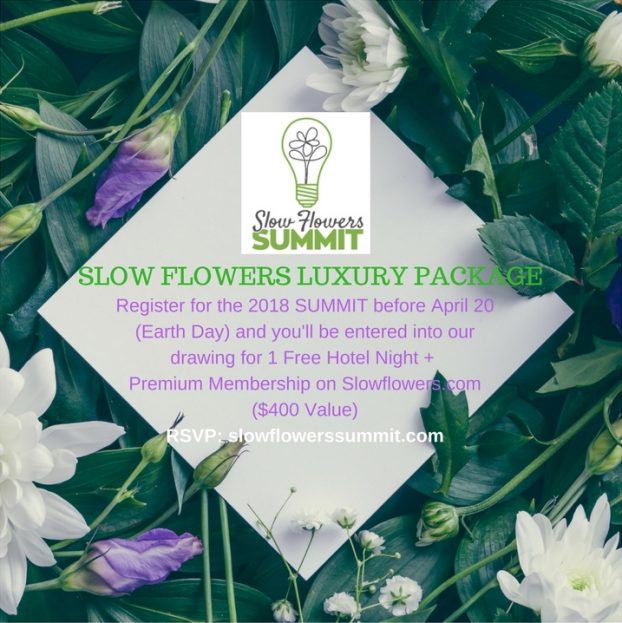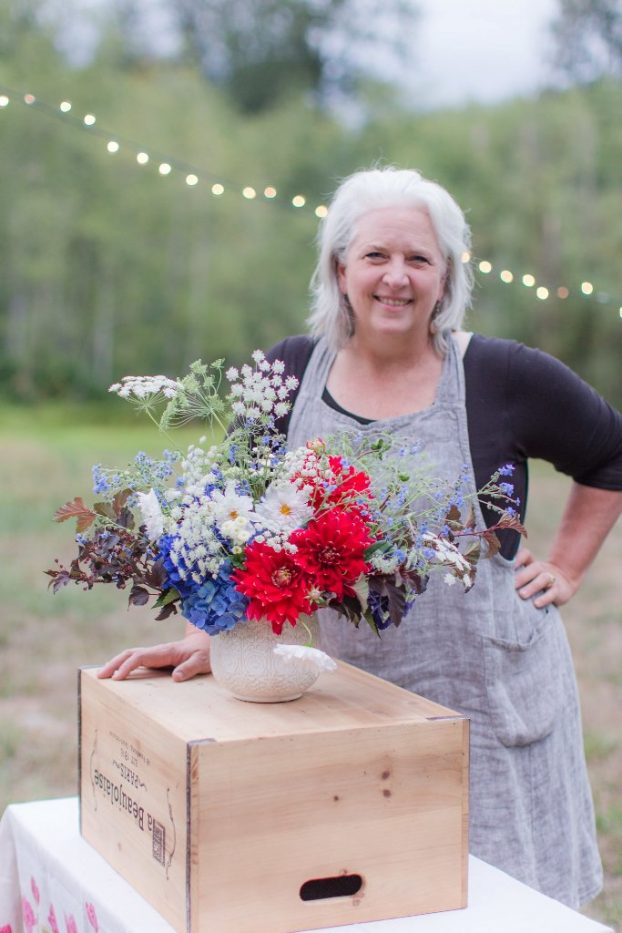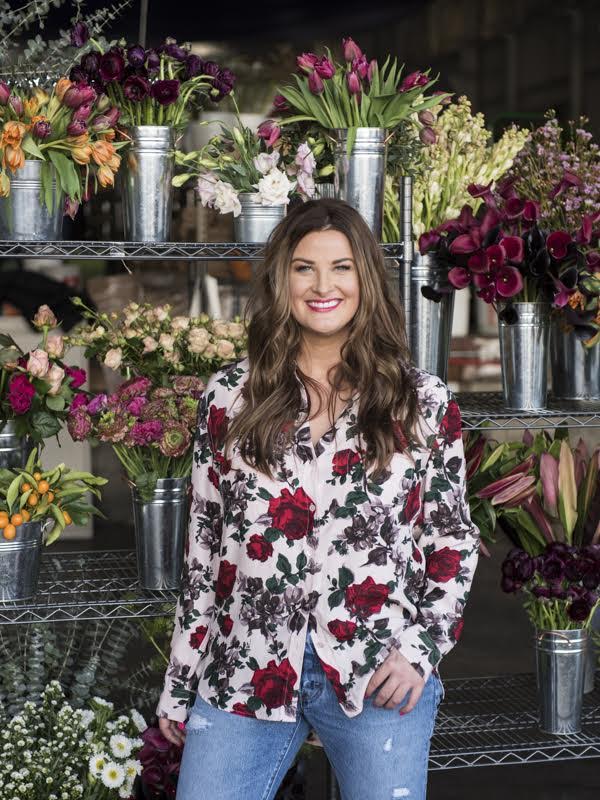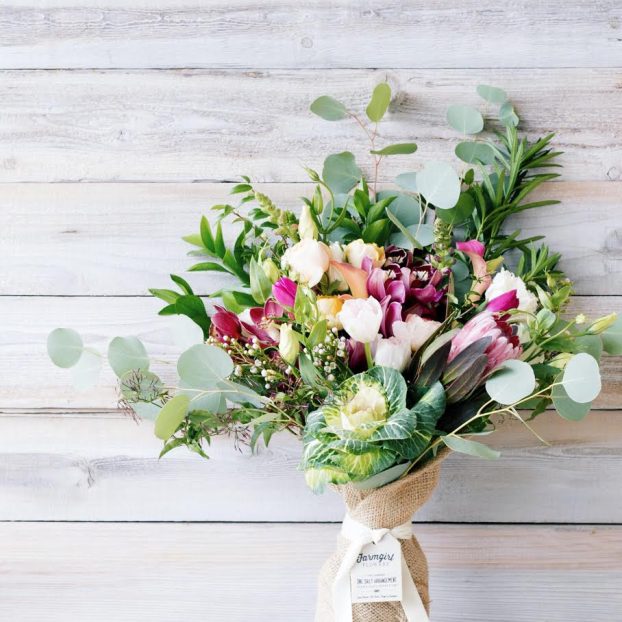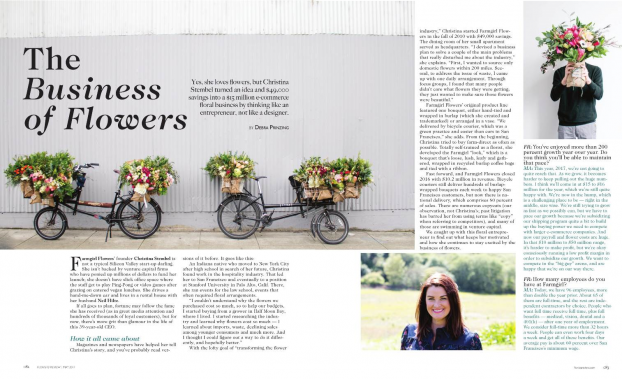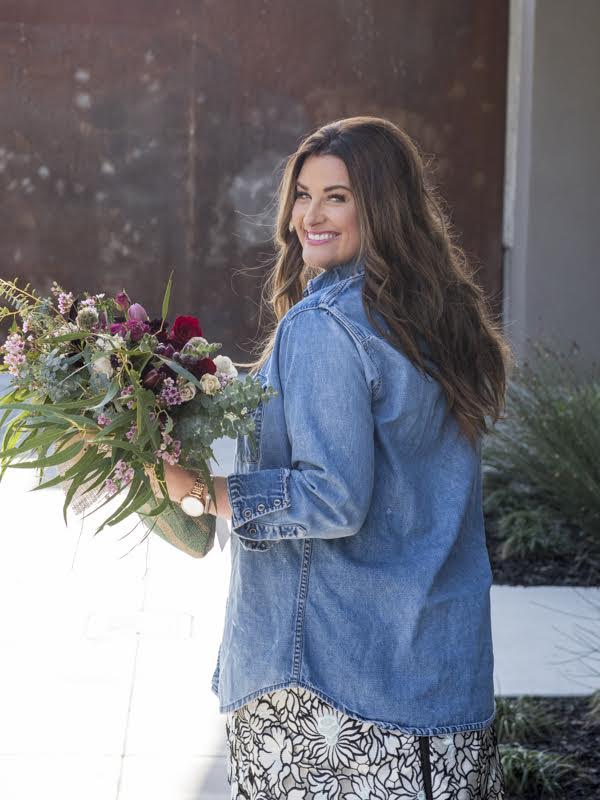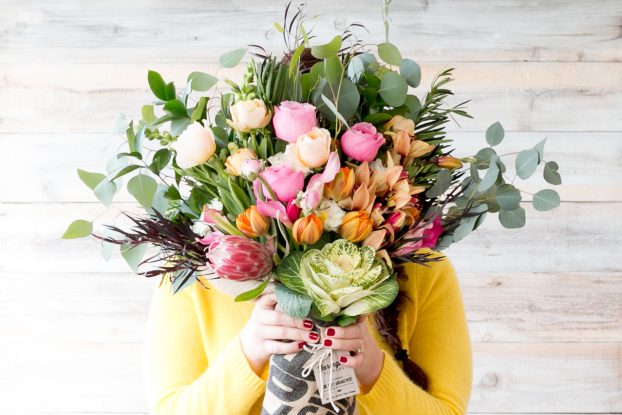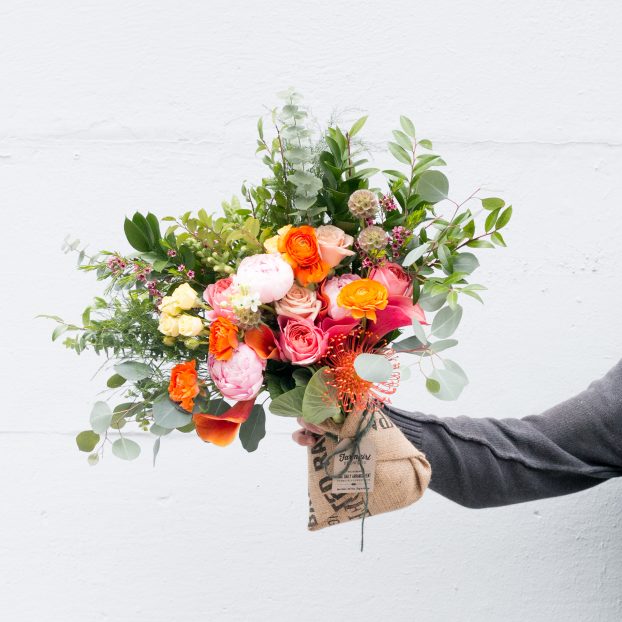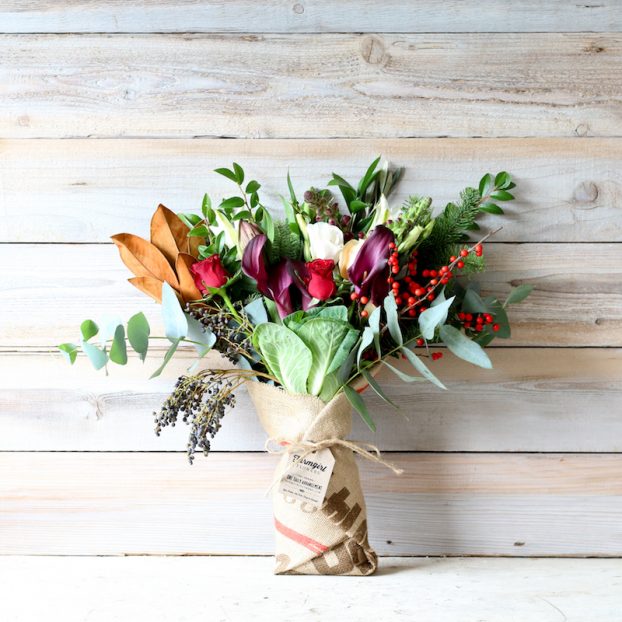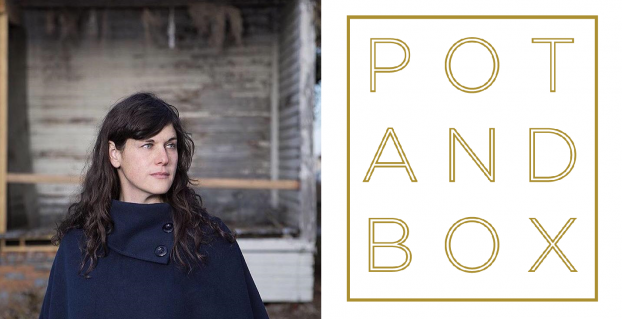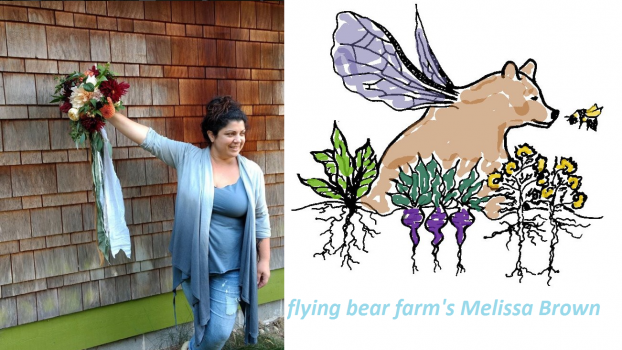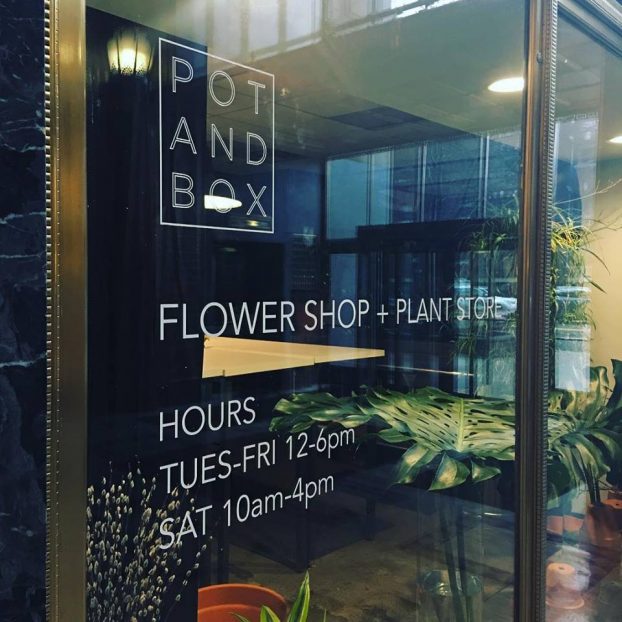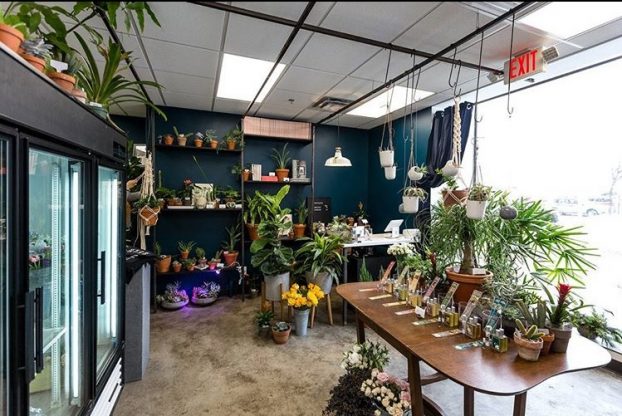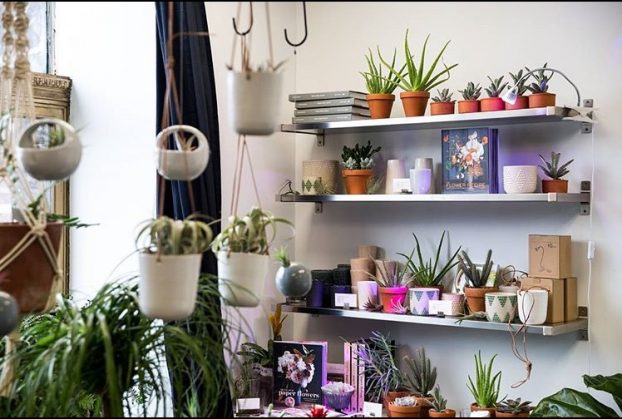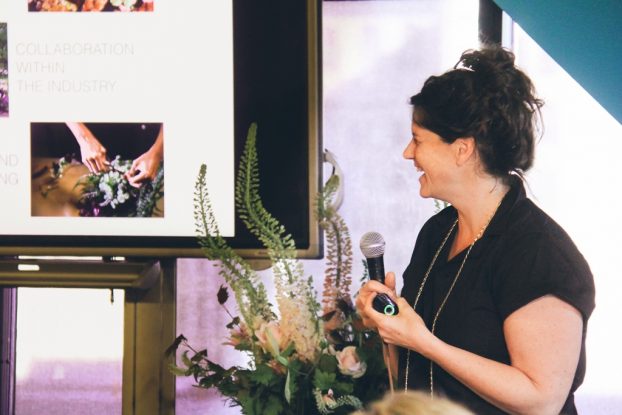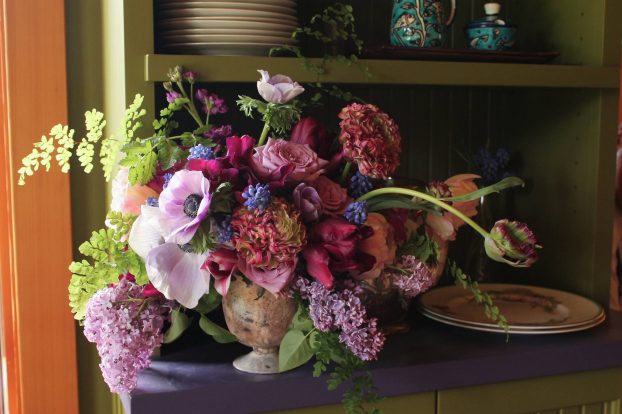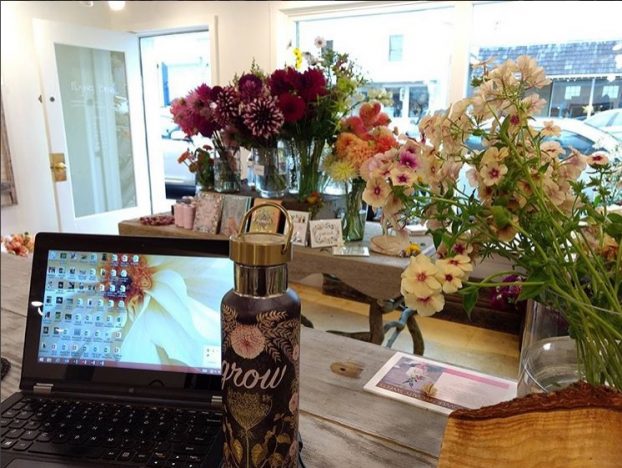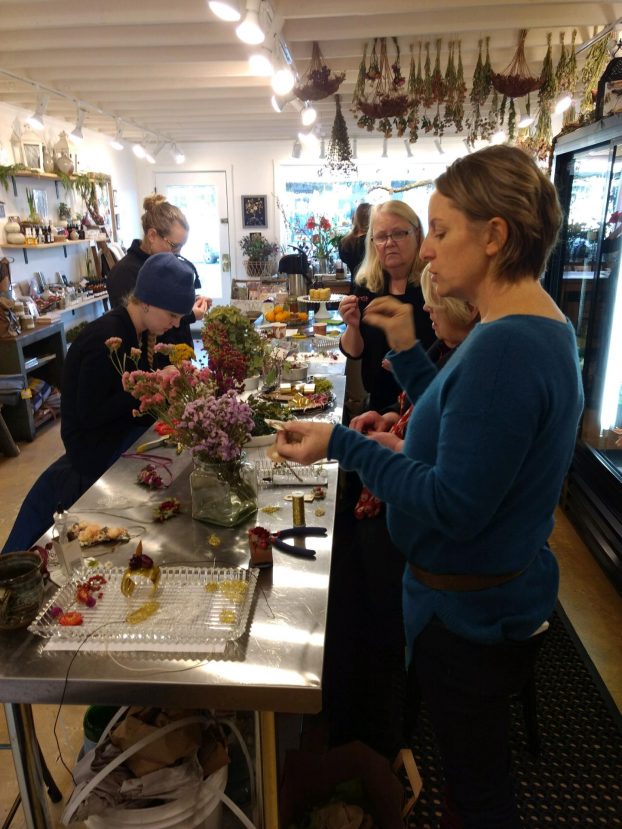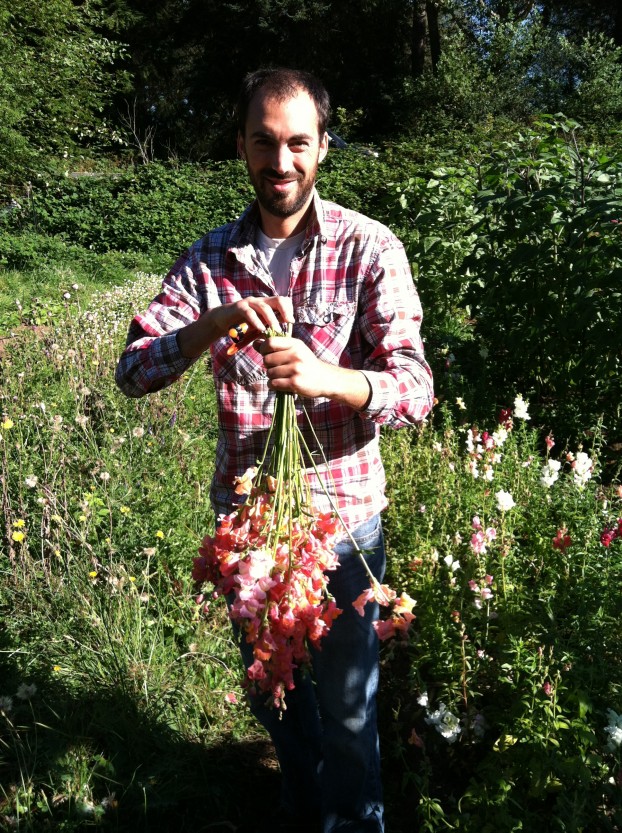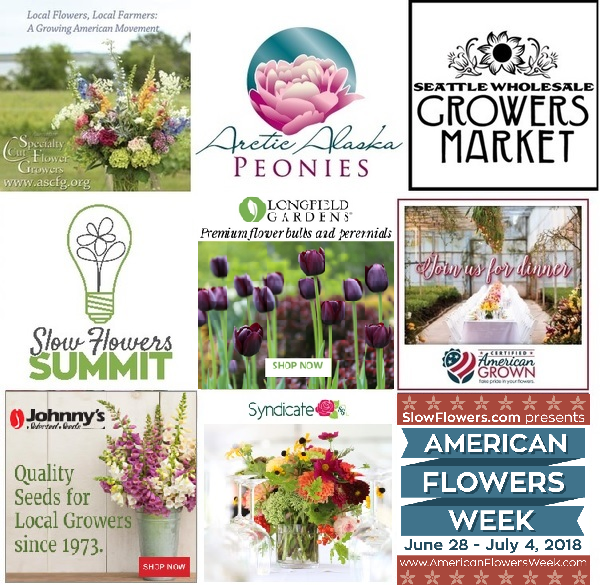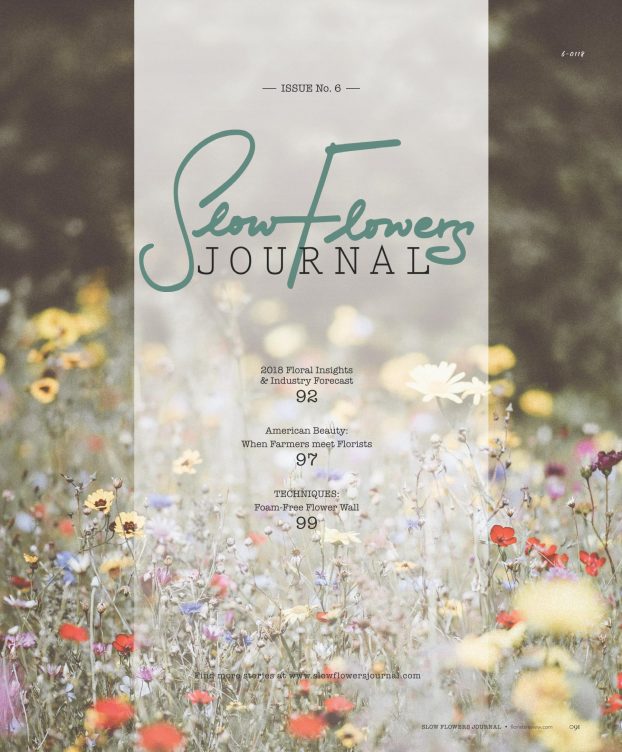Podcast: Play in new window | Download
Subscribe: Apple Podcasts | Podcast Index | RSS | More
I love the serendipity that comes from unexpected encounters and today’s episode is exactly that story!
While staying at Holly and Evan Chapple’s Hope Flower Farm in Waterford, Virginia, two weeks ago, I moved into one of the guest rooms in what is affectionately called the Tenant House. Two other guests were there, too — fellow speakers at the third annual Flowerstock.
And that experience introduced me to Steve Moore, of Seattle-based Sinclair and Moore and Nancy Teasley of Oak & The Owl and Ella Rose Farm, based in Fallbrook, California.
Never one to miss an opportunity to bring new and inspiring voices to the Slow Flowers Podcast, I asked if these to accomplished wedding and event designers — and friends — would be willing to record an interview with me for this episode.
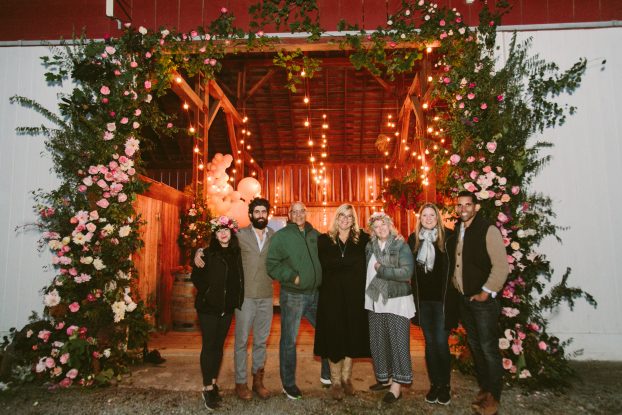
The Flowerstock speakers, including (from left): Alicia and Adam Rico, Evan and Holly Chapple, Debra Prinzing, Nancy Teasley and Steve Moore (c) Sarah Collier
As you’ll hear, Steve and I have briefly met in the past, while racing in and out of our local flower hub in Seattle, the Seattle Wholesale Growers Market, and while I’ve known of Nancy, she and I had never met. I was delighted to share lodging with these two generous souls.
More than that, I was enchanted to sit in on their presentations during two days of Flowerstock. Their approach to naturalistic design and their willingness to share with attendees about their business practices was quite fun to observe.
Here’s more about Nancy Teasley:
Nancy’s background is in fine art (painting), interior design, and business – all degrees she received while living in the Bay Area.
While an undergrad, she worked at a flower shop in Oakland, CA, where Nancy was immersed in events, as well as day to day retail. And that is where her love of flowers originated.
After working in floral for more than 7 years, Nancy left to pursue Interior Design.
She practiced with several design firms around the Bay after receiving her degree in 2008, all while continuing to design flowers on the side.
When she moved to Southern CA, and started working on events there, Nancy found a world where she could mix both of her backgrounds seamlessly.
Her experience in interiors guides her event design, & along with florals, she blends her two mediums beautifully.
Nancy is also the owner of Ella Rose Farm. She says she never expected, or looked, to become a flower farmer.
She explains: “It was a sort of far off day dream I had, if I made a million dollars, or if I lived in some alternate reality (like making a million dollars), I could fantasize about having a field of roses. I once spent a New Years Eve, way before Ella was even thought of, looking through a rose catalogue, envisioning what varieties I would choose (I think I IG’d that night, so long ago).”
Well, with her parents, that dream somehow came true. Growing roses required a lot of time, money, and grueling physical and emotional work. Ella Rose Farm grows and sells beautiful roses around the country. Nancy’s designs are so much better because of them.
And now, she describes herself as a part-time farmer, full-time designer. All that time in the field has made Nancy a better designer, a better business owner, and a better person. There’s no work quite like farming.
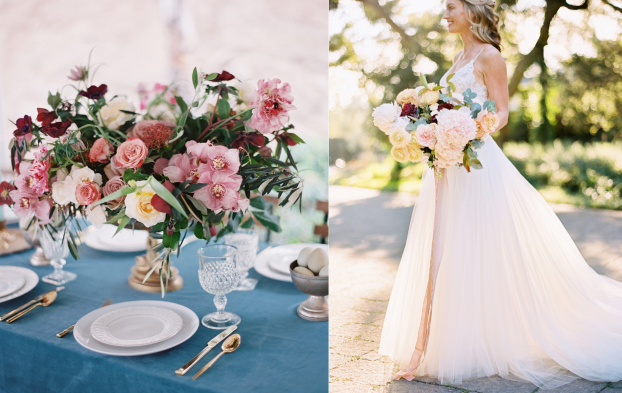
Nancy Teasley’s roses from Ella Rose Farm, featured in two of her recent designs for a centerpiece and a bouquet.
Follow Nancy at these Social places:
Here’s more about Steve Moore:
Years ago when Steve was eleven years old, he saw Steve Martin and Martin Short’s Father of the Bride in the movie theater.
He was mesmerized by the flowers, the cake, the swans and the twinkle lights hanging from the tent ceiling. He fell in love with weddings that day and knew what he wanted to do with his life.
So much of Steve’s life prepared him for the passion that became his career. As a kid, Steve’s mom taught him cake decorating and he assembled his first tiered cake at age of twelve.
He began playing piano at weddings when he was fifteen; at sixteen, he taught himself how to sew and made a wedding dress for his sister. These skills developed through high school and in college as Steve helped friends who were getting married.
After graduation, Steve opened his business, originally calling it Steven Moore Designs. He offered custom gowns and cakes in addition to full-service wedding coordination and event designer. He taught himself floral design and added floral services so he could fully execute his vision for each client’s ceremony.

Steve and Jamie Moore with their children, at a photo shoot recently shared in the Sinclair and Moore blog.
Several years later Steve met and married Jamie Sinclair DeBell. She joined the company as primary logistics coordinator, freeing Steve to focus on the design and aesthetics of each wedding. Jamie’s organization and administrative skills strengthened the company and took things to a whole new level. The business changed to Sinclair and Moore to reflect their partnership.
It has taken more than 10 years to grow the business to where it is today. Sinclair and Moore has been named a top wedding vendor by Martha Stewart Weddings, VOGUE, Harper’s Bazaar and Brides Magazine. These accolades are special, yet Steve says the most meaningful parts of the business are the people met along the way. “We wouldn’t be where we are today without the incredible people we have had the opportunity to work for,” he says.
Follow Steve at these social places:
Sinclair and Moore on Instagram
Sinclair and Moore on Pinterest
Thanks so much for joining me today! Please come back next week where you’ll hear another amazing episode featuring the leading voices in our Slow Flowers Community.
I want to encourage you to visit the Slowflowerssummit.com site to learn more about the amazing program, people and flowers you’ll engage with next summer. It’s not too early to save the date and secure your seat! Slow Flowers members receive special discount pricing and everyone receives $100 off with the Early Bird rate, on sale now!
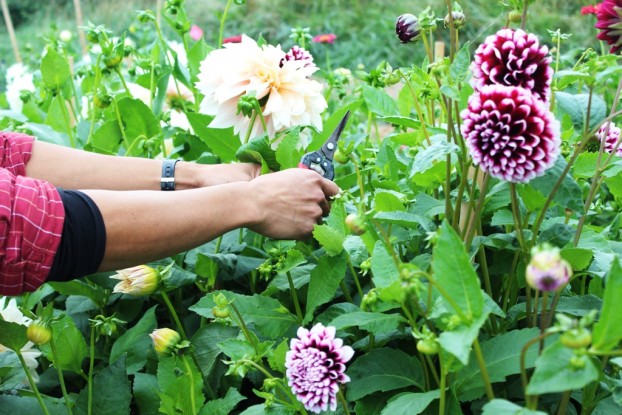
The hands of Slow Flowers member Riz Reyes, clipping dahlias at the University of Washington Farm in Seattle.
We have a vital and vibrant community of flower farmers and floral designers who together define the Slow Flowers Movement. As our cause gains more supporters and more passionate participants who believe in the importance of the American cut flower industry, the momentum is contagious.
I know you feel it, too. I value your support and invite you to show your thanks and with a donation to support my ongoing advocacy, education and outreach activities. You can find the donate button in the column to the right.
The Slow Flowers Podcast has been downloaded more than 375,000 times by listeners like you. Thank you for listening, commenting and sharing – it means so much.
Thank you to our sponsors who have supported Slow Flowers and all our programs.
Florists’ Review magazine. I’m delighted to serve as Contributing Editor for Slow Flowers Journal, found in the pages of Florists’ Review. It’s the leading trade magazine in the floral industry and the only independent periodical for the retail, wholesale and supplier market. Take advantage of the special subscription offer for members of the Slow Flowers Community
Arctic Alaska Peonies, a cooperative of passionate family farms in the heart of Alaska providing bigger, better peony flowers during the months of July and August. Visit them today at arcticalaskapeonies.com
Seattle Wholesale Growers Market, a farmer-owned cooperative committed to providing the very best the Pacific Northwest has to offer in cut flowers, foliage and plants. The Growers Market’s mission is to foster a vibrant marketplace that sustains local flower farms and provides top-quality products and service to the local floral industry. Find them at seattlewholesalegrowersmarket.com
Longfield Gardens provides home gardeners with high quality flower bulbs and perennials. Their online store offers plants for every region and every season, from tulips and daffodils to dahlias, caladiums and amaryllis. Visit them at longfield-gardens.com.
Syndicate Sales, an American manufacturer of vases and accessories for the professional florist. Look for the American Flag Icon to find Syndicate’s USA-made products and join the Syndicate Stars loyalty program at syndicatesales.com.
Johnny’s Selected Seeds, an employee-owned company that provides our industry the best flower, herb and vegetable seeds — supplied to farms large and small and even backyard cutting gardens like mine. Check them out at johnnysseeds.com.
Association of Specialty Cut Flower Growers. Formed in 1988, ASCFG was created to educate, unite, and support commercial cut flower growers. It mission is to help growers produce high-quality floral material, and to foster and promote the local availability of that product. Learn more at ascfg.org
Mayesh Wholesale Florist. Family-owned since 1978, Mayesh is the premier wedding and event supplier in the U.S. and we’re thrilled to partner with Mayesh to promote local and domestic flowers, which they source from farms large and small around the U.S. Learn more at mayesh.com.
Certified American Grown Flowers. The Certified American-Grown program and label provide a guarantee for designers and consumers on the source of their flowers. Take pride in your flowers and buy with confidence, ask for Certified American Grown Flowers. To learn more visit americangrownflowers.org.
And the Team Flower Conference – a professional floral event where flower lovers from all over the world gather for networking, learning, and celebration. It’s a special time for the floral industry to come together and whether you’re a farmer, designer, wholesaler, or just love flowers, you’re invited to attend as Team Flowers dreams big for the industry’s future. Head to teamflower.org/slowflowers to learn more about the 2019 conference in Waco, Texas!
I’m Debra Prinzing, host and producer of the Slow Flowers Podcast.
Next week, you’re invited to join me in putting more American grown flowers on the table, one vase at a time.
And If you like what you hear, please consider logging onto iTunes and posting a listener review.
The content and opinions expressed here are either mine alone or those of my guests alone, independent of any podcast sponsor or other person, company or organization.
The Slow Flowers Podcast is engineered and edited by Andrew Brenlan. Learn more about his work at soundbodymovement.com.









